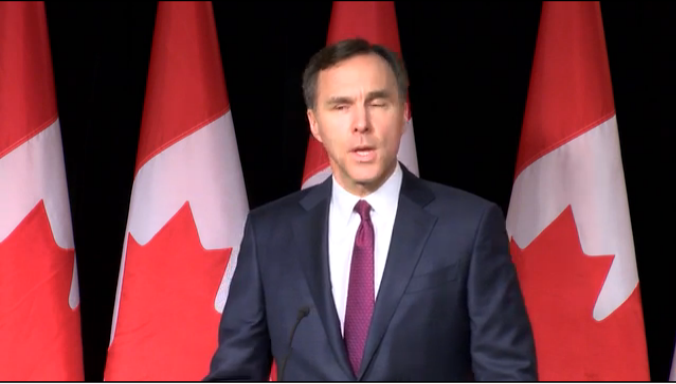The annual deficit will grow to $29.4 billion this year, but the debt- to-GDP ratio will fall over the next five years, the government said.
“They spent a little bit more than most of us expected,” Porter said, noting less of it went to infrastructure and more of it to “other things” like the Canada Child Benefit.
The government’s decision on stock options reversed a commitment the Liberals made during the fall election campaign to impose a $100,000 annual cap on the amount of stock options gains that qualify for a 50 per cent tax deduction.
Some of Canada’s biggest tech stars, including Shopify, had complained any limits on stock options would hamper start-up firms’ ability to recruit talent. Competition from Silicon Valley giants, like Apple and Google, for Canada’s best and brightest is already stiff given the falling value of Canada’s dollar, they argued.
However, many large firms, such as banks, also use stock options to reward their top executives, a move that has been criticized for contributing to the widening income inequality gap.
Stock option deductions cost the federal treasury $750 million a year, with three-quarters of that attributed to 8,000 individuals, finance department documents show.
The Canadian Centre for Policy Alternatives, a progressive think tank, has repeatedly called on successive governments to curb stock option incentives.
However, the government has also made it a priority to boost Canada’s track record on innovation, including support for technology startups.
In the other surprise move, the government froze the small business tax rate at 10.5 per cent. The Liberals had campaigned on a promise to reduce the tax rate on the first $500,000 of corporate income to 9 per cent over the next four years.
The government also said it would review the legislation passed by the previous Conservative government enshrining the small business tax cuts, signalling it plans to make the current tax rate permanent.
Read the full post in Toronto Star


Leave a Reply